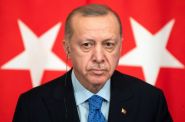Juliette Binoche: The Free-Flowing Intensity of a Life in Cinema
- 09/05/2025
- 5 comments
- 36
- 125


This is Beirut 11:25

Tilda Abou Rizk 10/05 11:00

This is Beirut 10/05 10:40

Johnny Kortbawi 10/05 09:00

This is Beirut 09/05 14:30

This is Beirut 15:20

This is Beirut 14:42

This is Beirut 14:04

This is Beirut 11:50

This is Beirut 06:20
Yara Germany 14:15
This is Beirut 13:45
Rayan Chami 12:00
Chelsea Al Arif 10:25

This is Beirut 10/05 15:45

Christiane Tager 10/05 10:00

This is Beirut 09/05 19:00

This is Beirut 09/05 18:55

This is Beirut 09/05 18:50

This is Beirut 13:45

This is Beirut 10:30

Bélinda Ibrahim 10/05 17:00

This is Beirut 10/05 10:50

This is Beirut 09/05 19:15

This is Beirut 13:10

Makram Haddad 09:30

This is Beirut 10/05 20:40

This is Beirut 10/05 16:50

This is Beirut 10/05 13:30

Karl Hajj Moussa 10/05 10:30

This is Beirut 08/05 15:15

Bélinda Ibrahim 07/05 12:00

Makram Haddad 02/05 15:05

Bélinda Ibrahim 30/04 15:00

par Élie-Joe Kamel, 15:35


par Ici Beyrouth, 15:10

par Ici Beyrouth, 15:04

par Ici Beyrouth, 14:38